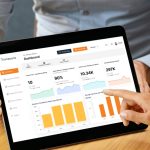It’s a way to get the newest vehicles on the market while not suffering from depreciation when it’s time to sell, but is leasing right for you?
There are many benefits to having a modern fleet. Not only is it a huge draw for passengers, but the quality of the vehicles could help win contracts as well as save operators money on fuel and maintenance and meet the latest emissions standards.
But what if the funding to invest in a new vehicle is not readily available?
An operating lease could be a viable option for updating a fleet with newer, modern vehicles. This way of funding a new vehicle, however, may not be suitable to all operations. Find out now if leasing sounds right for you.
How it works
An operating lease is treated like a rental and gives no ownership, Chris Mobbs, Area Sales Manager at Irizar UK explains.
“Regular fixed monthly payments are made throughout the term of the lease; usually a deposit equivalent to one-three months is paid up front. Monthly lease/rental rates will be worked out considering annual mileage,” he says.
At the end of the lease, the vehicle is handed back – subject to return conditions.
Richard Mann, Coach and Bus Sales Manager at Volvo, adds: “Rather than putting it on hire purchase where you make repayments, the main difference with leasing is that you don’t own the vehicle; it is the property of the lease comapny.”
The benefits
There are several benefits to choosing an operating lease. One of the biggest is cash flow. This is because you don’t pay the VAT up front. With a lease, the VAT is included in the monthly repayments.
Features and benefits of an operating lease include:
- Small start-up cost, only one-three months in advance
- Fixed monthly budget/payment
- No disposal costs or depreciation
- Off balance sheet: The monthly payment is classed as an operating cost
- Helps cash flow: Generally leasing is cheaper than purchase, says Mr Mobbs.
Emission advantage
As an operating lease is an off balance sheet transaction, rather than having the vehicle as an asset on your books that depreciates, it’s essentially an asset on the books of the lender instead. So you’re not suffering the depreciation that would typically be suffered on a hire purchase deal.
This is one way leasing can help when it comes to overcoming the challenges faced with emissions standards.
“An advantage to leasing is on the depreciation, especially at the moment,” Mr Mann says. “If you take Euro 5 vehicles for example. They’re not holding their value as well as some might hope because of the changes in emission regulations. If you take the vehicle on lease, you don’t have that depreciation to worry about; it’s not your risk.
“You have a fixed monthly price for whatever period of time you’ve agreed, and at the end you just give it back – you haven’t got the risk that you’ll lose money when you come to sell it.”
Is it for everyone?
An operating lease shouldn’t be entered into lightly as there are many terms and conditions.
Choosing to lease depends on the business model and the type of work you are doing, both Mr Mann and Mr Mobbs agree.
Who is an operating lease for?
- Contract specific operation
- Those who seek to fix cash flow against income from a vehicle
- Businesses that may require off balance sheet lending – protecting existing credit lines and banking facilities.
“If you are, for example, doing a lot of holiday services and working with companies that require vehicles of a certain age – say there was a requirement that the vehicle can’t be any older than three years – then if you take out a lease, you can run the coach for three years and at the end of the lease period of three years, you can give the vehicle back and get another one,” Mr Mann explains.
However, Mr Mann advises that if you’re running a more traditional coach operation, whereby the vehicle is in operation for 15 years, if a vehicle is taken out on lease, it’s never going to be owned. So you’re better – if you’re going to run it for a long period of time – taking it on hire purchase.
“There’s no one model fits all. The best thing to do is sit down with a financial representative and go through the pros and cons and work out which is the best way for your operation. But it certainly depends on how long you plan on running the vehicle for,” he says.
Before choosing to lease
Both Mr Mann and Mr Mobbs say it’s vital to be aware of the return condition and excess mileage charges.
“Because it’s going back to a finance company, it’s going to want to know that the vehicle is in tip-top condition. You just need to make sure, as most operators do anyway, that the vehicle is maintained properly and agree return conditions with the lease company,” Mr Mann says.
Mr Mobbs adds: “[Before opting into a lease] always consult the accountant to make sure a lease is suitable for the business needs."
























